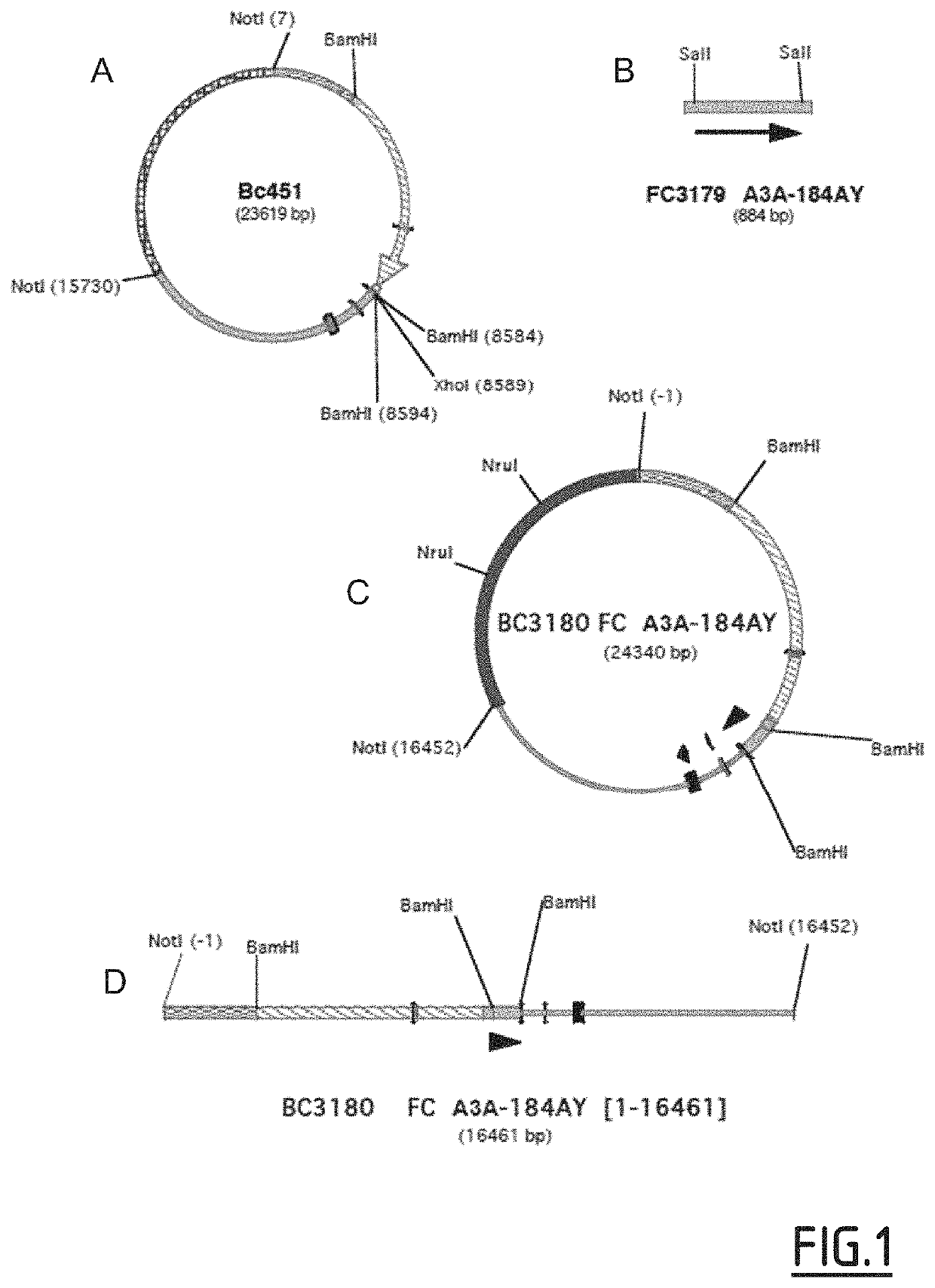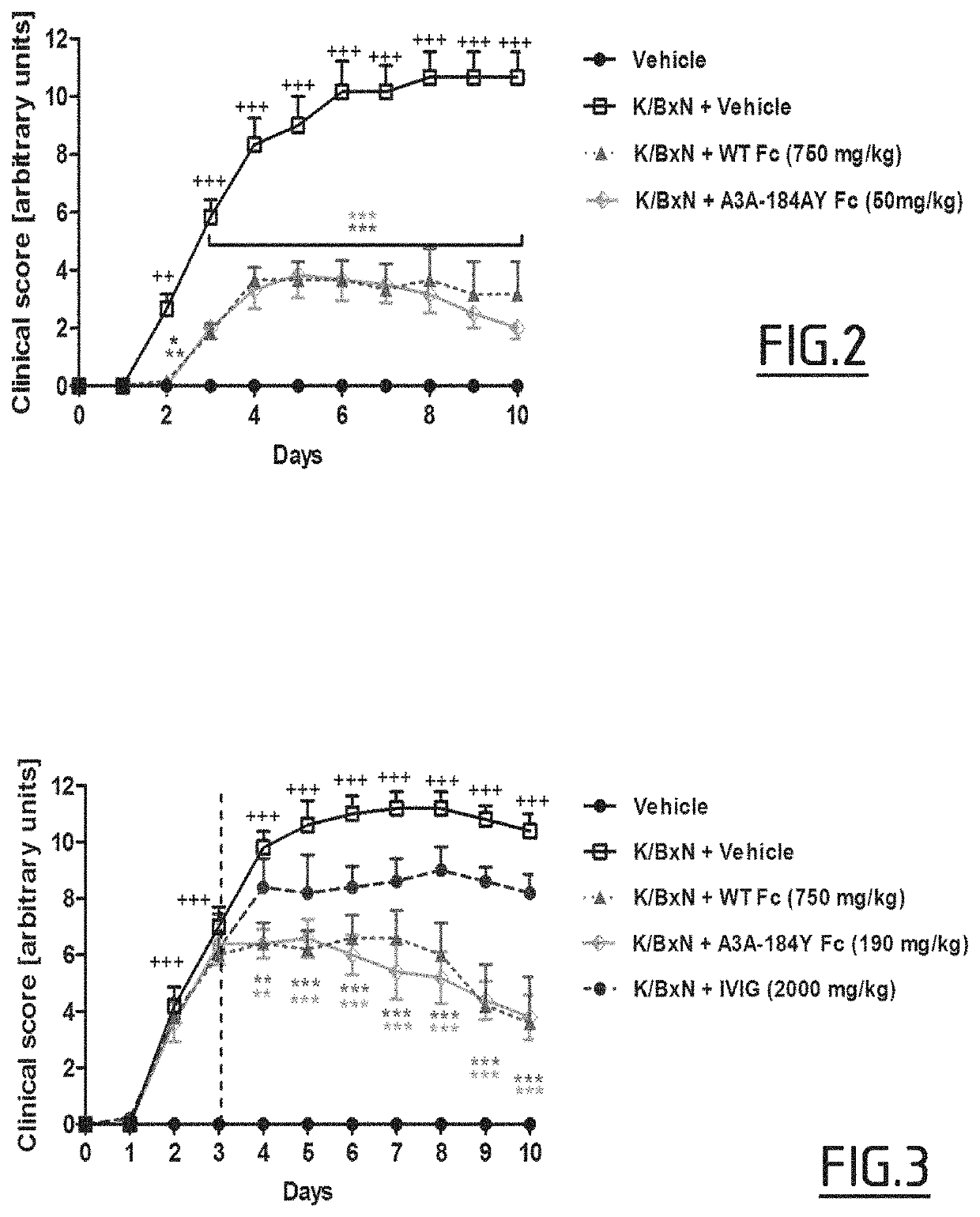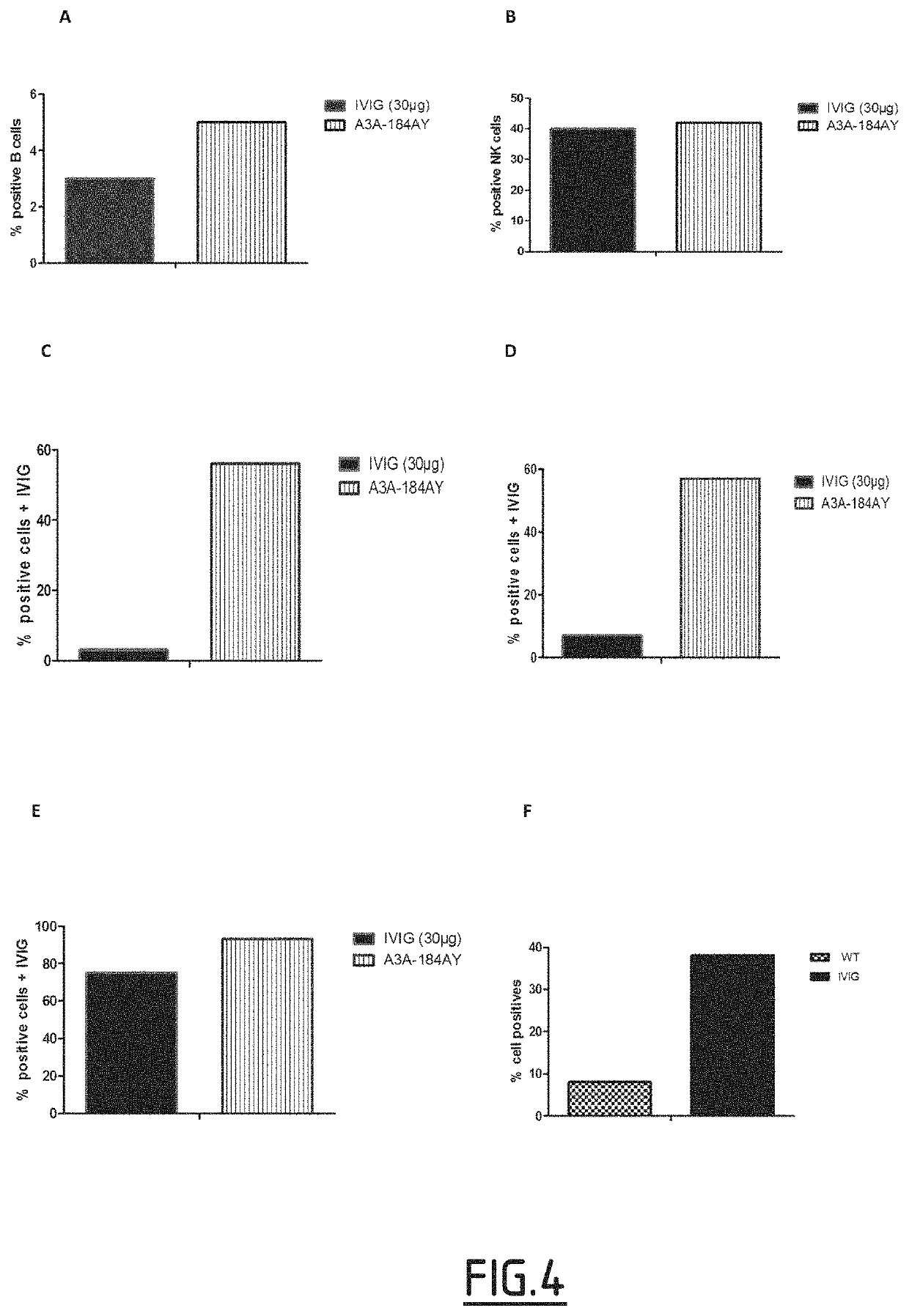Variants with fc fragment having an increased affinity for fcrn and an increased affinity for at least one receptor of the fc fragment
a technology of fc fragments and variants, which is applied in the field of polypeptides, can solve the problems of reducing the activation of the immune system, inhibiting the direct activity normally mediated by autoantibodies, and cytokine release, and achieves the effects of increasing the translation speed of messenger rnas (mrnas), slowing down the reading of the ribosomal complex, and increasing the final titre (carton, j)
- Summary
- Abstract
- Description
- Claims
- Application Information
AI Technical Summary
Benefits of technology
Problems solved by technology
Method used
Image
Examples
example 1
on of Variants (Mutated Fc Fragments) According to the Invention Produced in the Milk of Transgenic Animals and Characterization of Said Variants
[0160]I. Materials and Methods
[0161]Principle:
[0162]An Fc fragment according to the invention may be produced in the milk of transgenic animals, by placing the coding sequence of the Fc fragment in a milk-specific expression vector. The vector may be introduced into the genome of a transgenic mouse or goat by microinjection. Following the screening and identification of an animal with the transgene, the females are reproduced. Following the parturition, milking the females allows recovery of their milk, in which the Fc could be secreted following the expression of the specific promoter of the milk.
[0163]Protein Sequence of Fc Variant A3A-184AY (K334N / P352S / A378V / V397M / N434Y):
(SEQ ID NO: 11)DKTHTCPPCPAPELLGGPSVFLFPPKPKDTLMISRTPEVTCVVVDVSHEDPEVKFNWYVDGVEVHNAKTKPREEQYNSTYRVVSVLTVLHQDWLNGKEYKCKVSNKALPAPIENTISKAKGQPREPQVYTLSPSRDELTKNQVSLTCLVKGFY...
example 2
on of Variants (Mutated Fc Fragments) According to the Invention, Produced in HEK Cells and Characterization of Said Variants
[0172]I. Materials and Methods for Production
[0173]Each mutation of interest in the Fc fragment of sequence SEQ ID NO: 14 was inserted by overlap PCR using two sets of primers adapted to integrate the targeted mutation(s) with the codon(s) encoding the desired amino acid. Advantageously, when the mutations to be inserted are close to the Fc sequence, they are added via the same oligonucleotide. The fragments thus obtained by PCR were combined and the resulting fragment was amplified by PCR using standard protocols. The PCR product was purified on 1% (w / v) agarose gel, digested with the appropriate restriction enzymes and cloned.
[0174]The recombinant Fc fragment was produced by transient transfection (by lipofection) in HEK293 cells (293-F cells, InvitroGen freestyle) in F17 medium supplemented with L-glutamine using the pCEP4 vector. After 8 days of culture, t...
example 3
on of Variants (Mutated Fc Fragments) According to the Invention, Produced in CHO Cells
[0237]The recombinant Fc fragment may be obtained from SEQ ID NO: 14 in the same manner as that described in Example 2. This mutated Fc fragment may be produced by transfection into CHO—S cells with the aid of lipofection such as Freestyle Max Reagent (Thermofisher) using a vector optimized for expression in this cell line. The CHO—S cells are cultured in CD FortiCHO medium+8 mM Glutamine, under conditions agitated at 135 rpm in a controlled atmosphere (8% CO2) at 37° C. On the day before the day of transfection, the cells are seeded at a density of 6.105 cells / ml.
[0238]On the day of transfection, the linearized DNA (50 μg) and 50 μl of transfection agent (TA) are pre-incubated separately in Opti-Pro SFM medium and then mixed and incubated for 20 minutes to allow the formation of the DNA / AT complex. The whole is then added to a cell preparation of 1.106 cells / ml in a volume of 30 ml. After 48 hour...
PUM
| Property | Measurement | Unit |
|---|---|---|
| molecular weight | aaaaa | aaaaa |
| concentrations | aaaaa | aaaaa |
| affinity | aaaaa | aaaaa |
Abstract
Description
Claims
Application Information
 Login to View More
Login to View More - R&D
- Intellectual Property
- Life Sciences
- Materials
- Tech Scout
- Unparalleled Data Quality
- Higher Quality Content
- 60% Fewer Hallucinations
Browse by: Latest US Patents, China's latest patents, Technical Efficacy Thesaurus, Application Domain, Technology Topic, Popular Technical Reports.
© 2025 PatSnap. All rights reserved.Legal|Privacy policy|Modern Slavery Act Transparency Statement|Sitemap|About US| Contact US: help@patsnap.com



